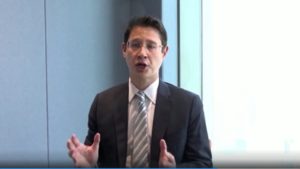
One of the nice things of running around in Shanghai with a local family is that you can study purchasing patterns on a really micro level. From even buying one product, you can get very useful information. For the Shanghainese this behavior is part of their daily routine, so they cannot imagine outsiders have to get used to that. For foreigners doing business in this highly competitive climate, those stories hold a few valuable lessons.
Today we bought a JoYoung soya milk maker in
Mediamarkt, but rest assured that much water has gone through the Huangpu River, before the sales people could close a deal. It says much about how difficult it is to sell to Chinese - especially if you ever think of making a profit.
Interest was triggered off by a demonstration at the very busy Lian Hua
Carrefour store. Triggering off interest was only the start of a lengthy process. At the stand we tasted at least four different combination of soya milk drinks that had been prepared with the machine. I thought they tasted equally disgusting, but our Chinese side decided it was worth more investigation after we had spent about half an hour at the stand. Cost of this Joyoung soya milk machine at Carrefour: 399 RMB. (Say 40 euro)
Since we passed by in Mediamarkt, we decided to check. The same Joyoung soya machine was there 100 Rmb cheaper: Carrefour was 30 percent over the Mediamarkt price. It was obvious that Carrefour had lost this potential deal. Carrefour offers to pay the difference, if you can buy a similar product for a lower price. But who wants to go back to Carrefour if you find a cheaper product elsewhere? Only if you are a very loyal Carrefour shopper and Shanghainese shoppers have not yet discovered the word loyalty when talk about retailers. (For manufacturers that might be different though.) Also at Mediamarkt, very well informed sales staff, with a lot of patience for demanding customers.
Next was
Taobao.com, the popular e-commerce service that is increasingly used by Chinese customers. They offered a similar looking machine for 256 RMB, that had been bought by 860 customers over the past week and by thousands over the past months. That called for a family council, since mostly they would drop any deal for a cheaper offer, no matter who makes the offer, for a similar product.
In this case it was different. The machine was needed for an upcoming trip to Europe, so timing was an issue. Second, they were not sure
Taobao would offer genuine products. They would trust foreign brands like Carrefour and Mediamarkt (not their Chinese competitors) more in their policy of keeping fake products out.
If there would have been more time at hand, they would have gone for Taobao, do they could check the quality. Taobao offers to take products back within 15 days. (For other products, like the CGG boots, they would have less problems with fakes, as we might see in another upcoming story.)
So, online sales are going to be the main challenge for Mediamarkt too, as well as their domestic competitors. Online sales are going up fast and especially for the older segment of consumers building up trust is key. When online providers can do that, they will beat the offline electronic retails, foreign and domestic. Both Mediamarkt and
Best Buy are only minor players and will have a tough challenge in building up a sizable business.













